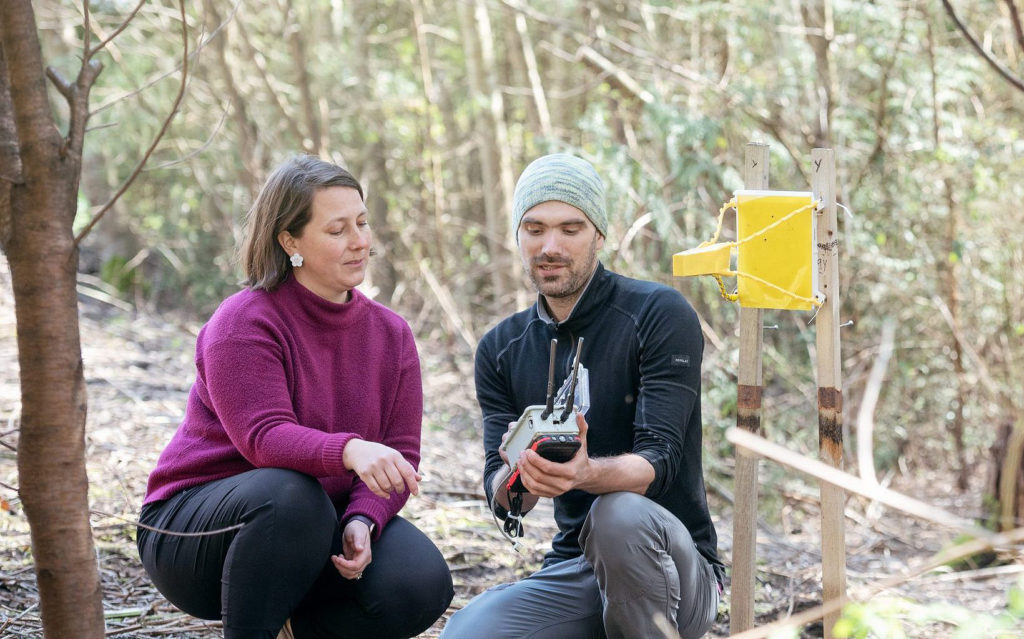
A new Campus as a Living Laboratory project is enabling UBC researchers to monitor insects in real time, on a scale never done before.
“This project promises to help us understand insect biodiversity, which we know is both crucial to ecosystems, and affected by human activities,” says Dr. Juli Carrillo, Assistant Professor in the Faculty of Land and Food Systems, and lead researcher of the Digital Detection Web for On-Campus Insects project.
Monitoring insects has been a time-consuming and inaccurate process. Farmers and scientists capture a small fraction using sticky cards – simple sheets of paper with glue that are placed out in the field. Traditionally, these are retrieved weekly and the trapped insects are manually identified. In order to dramatically improve the process, Dr. Quentin Geissmann, a postdoctoral fellow in LFS, has developed a technology called ‘Sticky Pi’ that automates this monitoring and scales it up significantly.
Sticky Pi is a ‘smart’ trap with a camera that takes pictures every 20 minutes. It uses deep learning – a subfield of machine learning using algorithms – to automatically identify insects, in real-time. “There are two main impacts of scaling up insect biodiversity monitoring.” says Dr. Geissmann. “First, we save many precious hours of work through automation. Second, and more importantly, because we acquire data in real-time, we can see new patterns. For instance, we are very interested in the time of the day insects are active and how they respond to weather variations.”
More than 50 Sticky Pi traps will be deployed across UBC campus, from residential areas to the fields and forest of the UBC Farm, allowing for a new understanding of insect biodiversity in these different ecosystems.
This project will not only create baseline data for UBC Campus and the UBC Farm on insect biodiversity, but will monitor change and improve future management decisions.
“This project addresses the pest monitoring needs of growers and improves existing technology for researchers,” says Dr. Carrillo. “But it also benefits the greater community by increasing our understanding of the land and space in which we live.”
Please visit the Faculty of Land and Food Systems website to read the full story.
Through Strategy 9: Knowledge Exchange, UBC is working to improve the ecosystem that supports the translation of research into action.